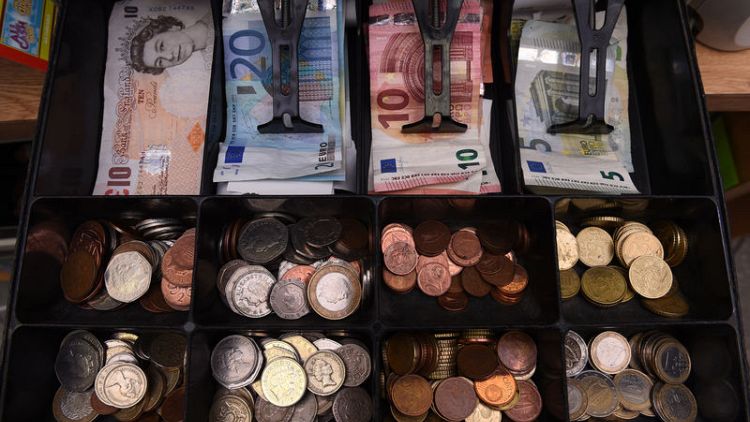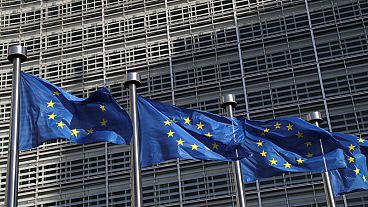By Francesco Guarascio
BRUSSELS (Reuters) - Foreign deposits dropped in most euro zone states in the second half of 2018, after banks were hit by money-laundering scandals, European Central Bank data showed, a trend that could expose one of the bloc's weak spots in tackling financial crime.
Large holdings of foreign deposits and outsized cross-border financial flows are common features of lenders embroiled in money laundering cases, like Latvia's defunct ABLV bank and the Estonian branches of Denmark's Danske Bank and Sweden's Swedbank. All have been accused of having handled money from Russia that may be the proceeds of crime, corruption or tax evasion.
The fall in foreign deposits began in the second half of last year, the data show. That coincided with prosecutors opening a probe in July into Danske Bank for alleged money laundering at its Estonian branch, in what soon emerged as one of the biggest illicit financial operations in Europe.
Deposits in euro zone lenders from companies and individuals outside the 19-country currency bloc dwindled by more than 12 percent to 1.1 trillion euros ($1.2 trillion) in the last six months of 2018, according to the latest ECB data analysed by Reuters, shedding more than 150 billion euros.
The fall was visible in most countries in the bloc, with some exceptions, like Luxembourg, Ireland, Finland and Portugal, where foreign deposits have increased.
While attracting funds from wealthy foreign individuals and firms is a legitimate business, anti-money laundering experts point to higher risks linked to so-called non-resident deposits because their oversight is trickier - especially when foreign funds amount to a large share of total deposits.
"A high share of non-resident deposits is an indicator of higher money-laundering risks," Laure Brillaud of anti-corruption group Transparency International said.
Nicolas Veron, financial affairs' expert at the Brussels-based Bruegel think-tank, said such a situation would warrant specific attention from supervisors.
In a bid to clean up the country's reputation after its third-largest bank, ABLV, collapsed in 2018 over money-laundering allegations, the former Latvian government last year set a 5 percent threshold for foreign deposits - which had peaked at about half of the total soon after the Baltic state joined the euro in 2014.
LUXEMBOURG
In what seems to be an acknowledgment of these risks - or the result of a flight of suspect money in the face of greater scrutiny - the amount of foreign deposits has recently gone down in most euro zone states and accounted for 8 percent of the bloc's total deposits in December, from nearly 9 percent six months earlier.
But the situation varies widely across the euro zone.
In the Baltic countries that have been most in the spotlight in recent months, foreign deposits are falling both in absolute terms and as a share of total deposits.
In Latvia, where the new centre-right government sworn in in January has ditched the 5 percent hard threshold set by the previous administration, foreign deposits have been falling for years and now represent nearly 12 percent of the 16 billion euros in overall deposits.
In Estonia they are also falling and amount to less than 3 percent of the total.
In Finland, where top lender Nordea faces money-laundering allegations for transactions with shell companies in the British Virgin Islands and Panama, foreign funds are instead growing and account for 7 percent of all deposits.
The country with the largest national share of foreign deposits is Luxembourg, where more than 17 percent of deposits stored at banks belong to companies or individuals with residencies outside the euro zone, giving a total of 63 billion euros, about half the amount stored in Germany, the bloc's largest economy.
In Germany and Italy, foreign deposits are well below 4 percent of the total. In France and the Netherlands their share is at 16 percent.
($1 = 0.8896 euros)
(Writing by Francesco Guarascio in Brussels; Additional reporting by Gederts Gelzis in Riga; Editing by Hugh Lawson)



